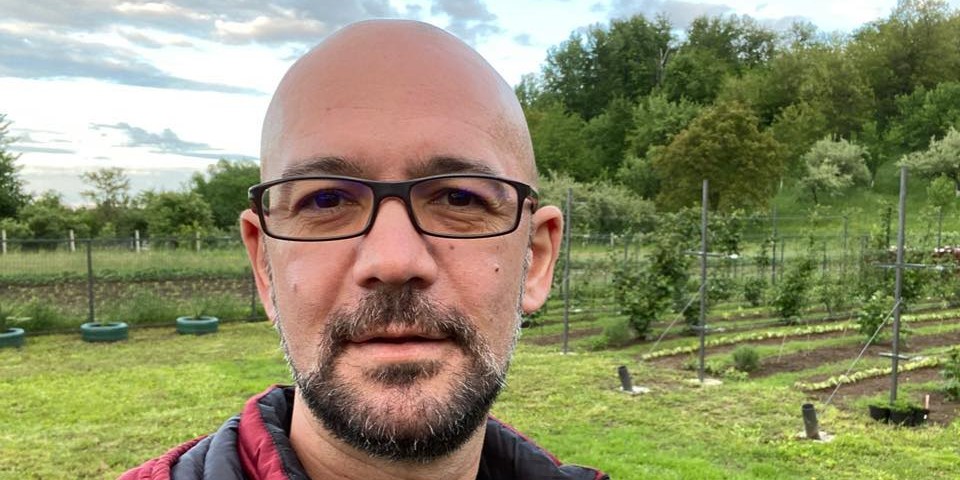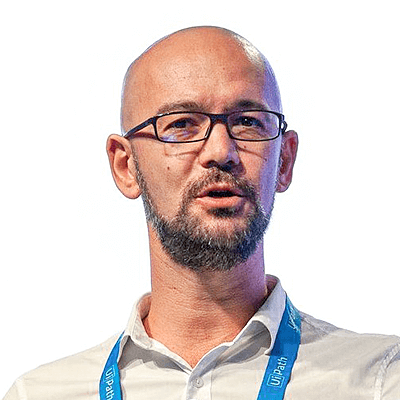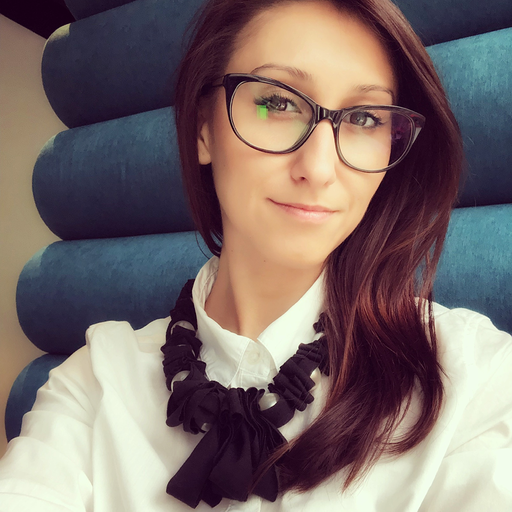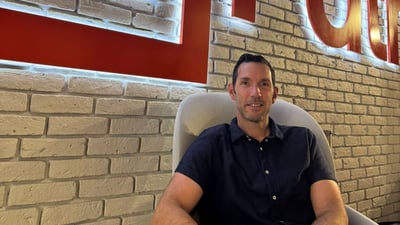Meet the Leaders: Bogdan Ripa, Vice President of Product Management
Meet the Leaders: Bogdan Ripa, Vice President of Product Management
Share at:

This series will give you the opportunity to get to know some of the Leaders at UiPath. They are the ones who carry a lot of extra responsibilities on top of overseeing projects and processes. They make sure to hire the right people for their teams. They act like coaches and they support you to become the best version of yourself.
We have 3 major development centers at UiPath based in Seattle, Bucharest and Bangalore and 4 smaller ones in Cluj-Napoca, Vienna, Lviv and Eindhoven. Although our teams take care of different parts of our automation platform, they all have the same goal: deliver the best automation product out there.
We have some talented colleagues in R&D. They are passionate, they are resourceful and they're willing to create something that’s never been created before. Meet Bogdan Ripa, Vice President of Product Management, one of the leaders in our Bucharest office.
Tell us a bit about your career journey so far. How did you get to where you are today?
My journey started 20 years ago, in 2000, while I was still a student. I studied in French and during those university years, I interned at various companies. And I was travelling to France. A lot. And then one summer, in my second year of college, I came back and together with a friend, we decided to start a company. But we had some bad luck, as it was 2000 and the economy went down that year, and we didn't know what was happening.
We started doing a lot of contract work and we realized that we were doing a lot of repetitive work. We said okay, we should start building some products to help us be more productive. And at some point, we started selling those products online. In 2006 we were acquired by Adobe. We started building the Adobe Campus in Romania.
In 2014, I decided to leave and join a friend’s company that was doing something completely different. Up to that point I was mostly building web-based development tools. My mission at this new company was to help him build a smartwatch. After we did that and managed to sell it, the company got acquired by Fitbit, and that’s how I ended up working at Fitbit.
After a while, Daniel Dines reached out to me and I decided to join UiPath. I've already been here for 2,5 years now.
What area of our product do you oversee?
I am part of the Product team and I oversee the development environment. We create software robots that can take on repetitive work from employees in various companies. Actually, anybody can use them at home as well and they can do work for you, help you automate things in your home or business.
I am responsible of the lower end of services that the automation is using so that they can run on various computers. We call that the Driver. The robot itself interacts with the computer just like a human would, so it will use the keyboard to type what it needs and click or move across the screen with the mouse.
Who has had a tremendous impact on you as a leader? Maybe someone who has been a mentor to you? Why and how did this person impact your life?
I think there’s been multiple people. At Adobe, it was Digby Horner, the person that oversaw the campuses that were not headquarters. I learned from him that it is better to say sorry than ask for permission. This was within the first month at Adobe, when I didn’t know what I was doing, and he said this is how you get things done. You don't need to ask for permission, if you’re expertise and instincts tell you to go for it. You just do it. And then if it's not okay, you’ll know for the future - you’ll learn from that experience.
Then at Fitbit, Andrei Pitis taught me how to do change management. He's good at that. He spends a lot of time just focusing on the process of change management and making sure that decisions are made and communicated correctly.
And at UiPath, Daniel taught me a lot about boldness and taking smart risks.
What has been the biggest professional challenge you faced so far in your career?
The biggest professional challenge was back at Adobe, when we were working on acquiring a company and I was asked to move in the US and stay there for a while. I was not ready to move, so I chose to move for just six months and the renegotiate.
Six months later, that's where my biggest challenge was: whether to come back to Romania or remaining in the US. I ended up deciding to come back to Romania, and that was a hard decision. It was one of those key moments in life, when a different decision probably would’ve taken me in a totally different direction.
Knowing what you know now as an experienced professional, if you could give "early career you" a piece of advice, what would it be?
A company is made of people and investing in people and in building relationships with not just your team, but with everyone, pays off on a longer term. Earlier I was more focused on building great products, no matter the costs, and that’s not always the right thing to do.

How would you describe your team? Think of people, projects, mission, anything that somebody looking to join your team should know.
We are a diverse team. We have multiple types of people that work well together. At the end of the day, we all have common goals that revolve around making sure that our customers are served correctly. Making sure they're happy, and they have the ROI they expect with us and with our products, making sure that what we build has the right level of quality.
People around me are very bold and direct. They say what's on their mind, they don't go around a topic. We are very close as a team, especially now with everybody working from home. Things have changed a bit for all of us, but we managed to stay strong and continue to work as we used to before this COVID-19 global crisis.
What are the most important decisions you make as a leader of your team?
Hire the right people. That's a costly mistake if you don't do it correctly. If you don't spend enough time working through the funnel and making sure that you pick the right candidates, that can cost a lot and can also have a lot of benefits on the long run if you make the right choices.
On the product side, it’s choosing the right tradeoffs. There will always be people who’re not going to be happy with a release of a product as they wished that one bug fixed or that one feature made it into this next release, and it didn't. You can’t please anyone. This is unfortunately part of the job. You must learn how to navigate those waters.
How would you describe the connection between our values and vision with the market and clients/customers?
We're an enterprise company. We sell to large enterprise companies. I like to think about us as being a bit unique in this space. We're different than most companies. And that's mostly because when we approach our prospects, we're very open and we're humble in the sense that we're really trying to help the customer and learn from them.
And not once have I said, ‘Well, maybe UiPath is not the right tool for that specific process’ and that's something that our customers really appreciate. We don't go in with the goal of just sell the product. Sometimes, we must make sure that it's the right product for what our customers need.
I guess if you look at all our values, they can easily translate into the way we work with our customers. The wat we approach them, as well as the way we sell to them. We support them after the sale, and this proves that we're truly partnering with our customers. I'm very happy when they come back and say, ‘Well, you know, just three months in after purchasing your products and we’re already seeing the return on investment’.
Can you describe the flow that you're following when developing a new feature?
Usually we check what we have on the Insights Product Board. Everyone in the company and even customers can come with insights. This is where you can read a customer’s perspective, learn what they want. This helps us understand the problem space from their point of view.
We write a very basic specification, we prioritize it against everything else and if we decide that it's something that we wanted to do, we start doing technical spikes. We start writing detailed specs, we start doing design investigations, trying to see what the product feature would look like.
And when we feel like we have enough for the development team we prioritize it and we put it in the backlog. From there it goes through the usual flow: it gets developed and tested. We do integration testing as well. And the final step would be when we merge and release it.
What made you choose UiPath out of all the other tech companies out there?
It was the pragmatism of the UiPath products. As a result of us doing our job, we make our customers lives easier, and our customers are happier. We're freeing their time, so they can focus on providing real value that only us as humans can provide. To be more creative in what they do and enjoy their work more.

Claudia is a former Employer Branding Events Specialist at UiPath. She dedicated 2.5 years to working with the company.
Get articles from automation experts in your inbox
SubscribeGet articles from automation experts in your inbox
Sign up today and we'll email you the newest articles every week.
Thank you for subscribing!
Thank you for subscribing! Each week, we'll send the best automation blog posts straight to your inbox.



